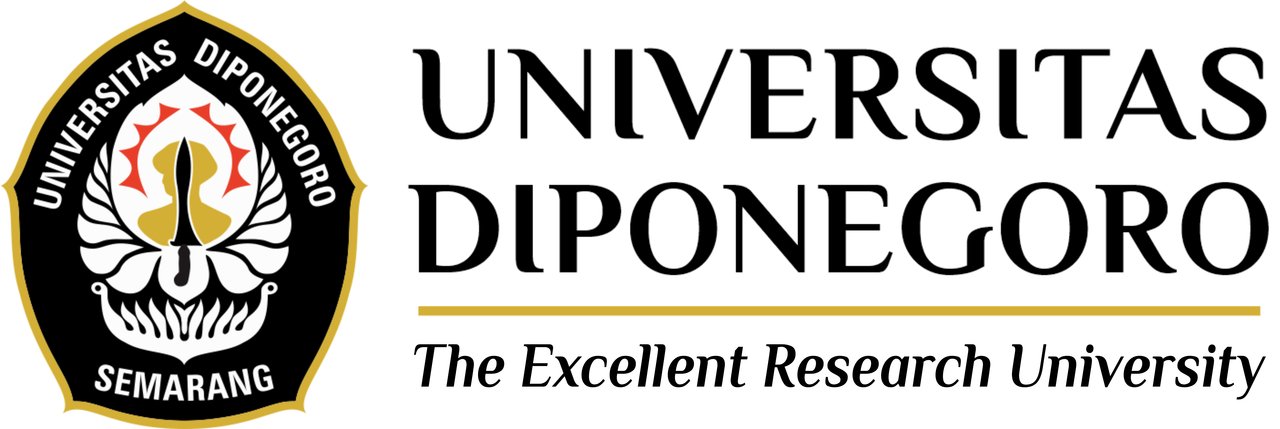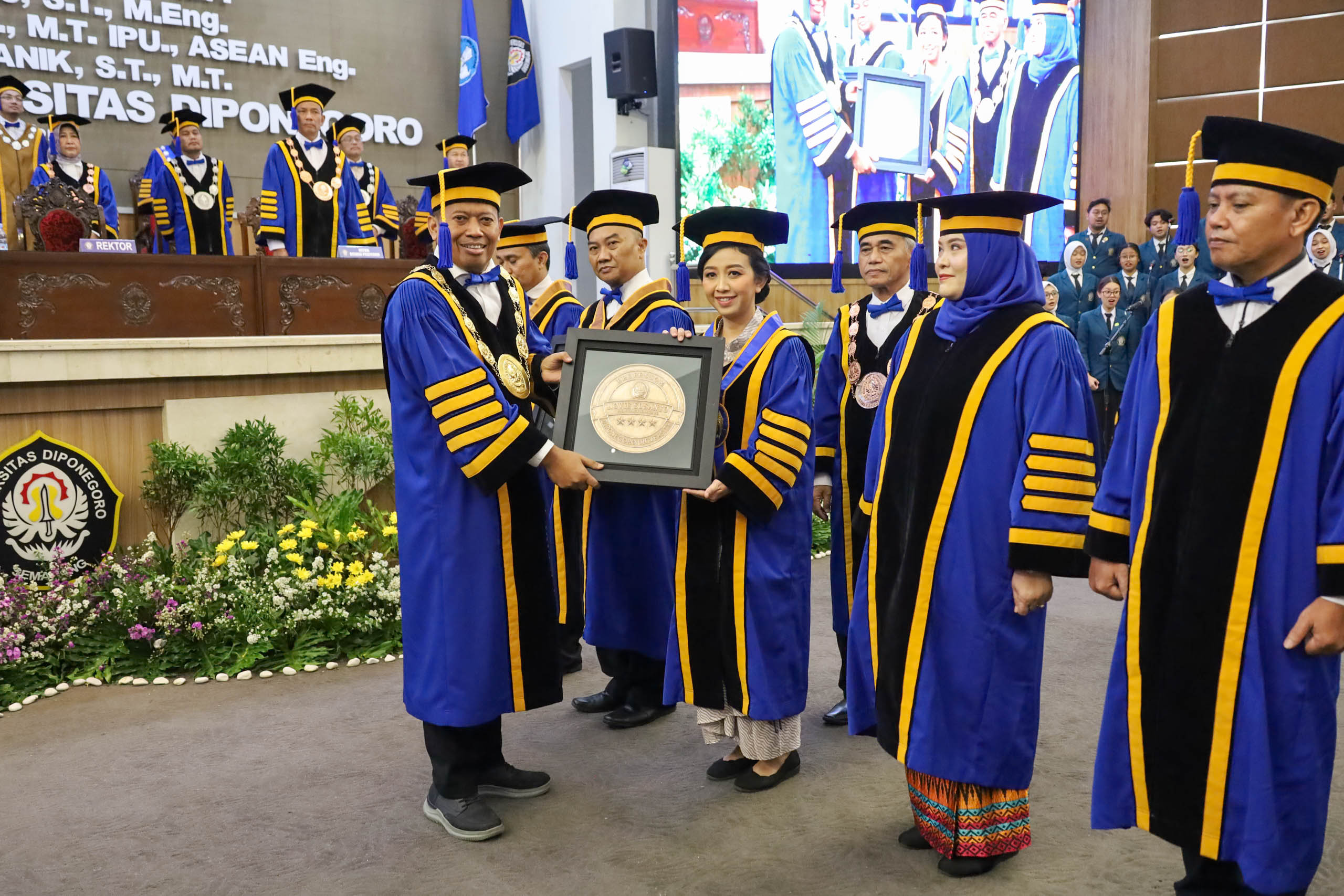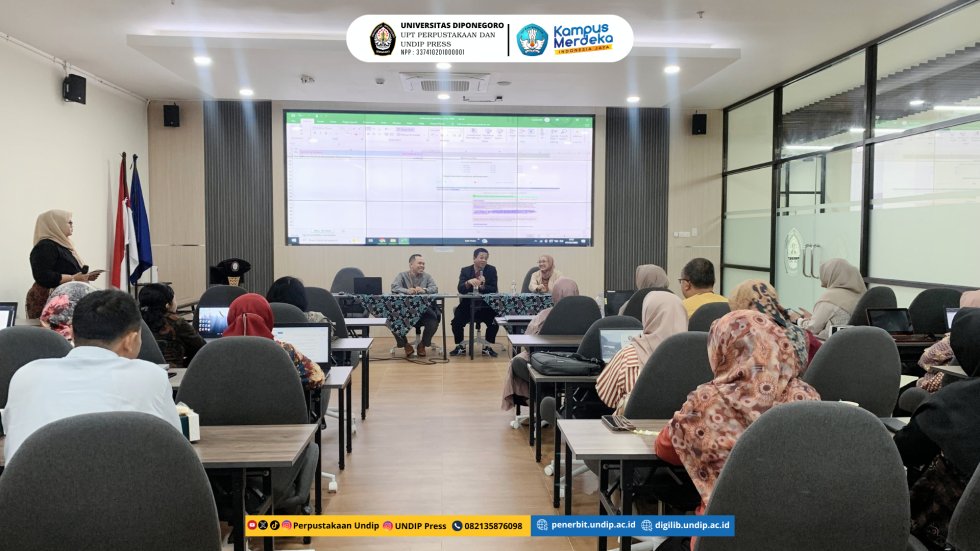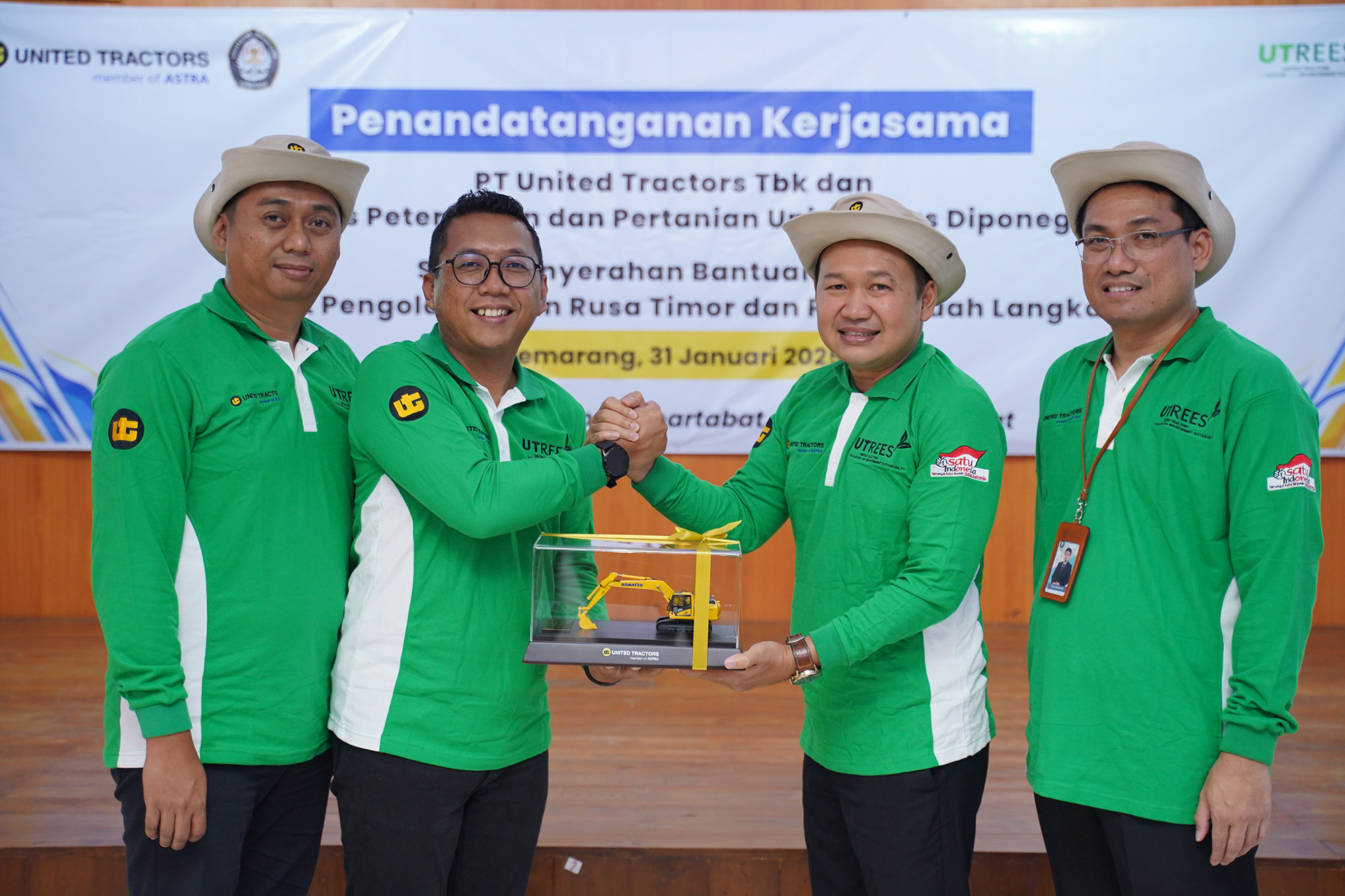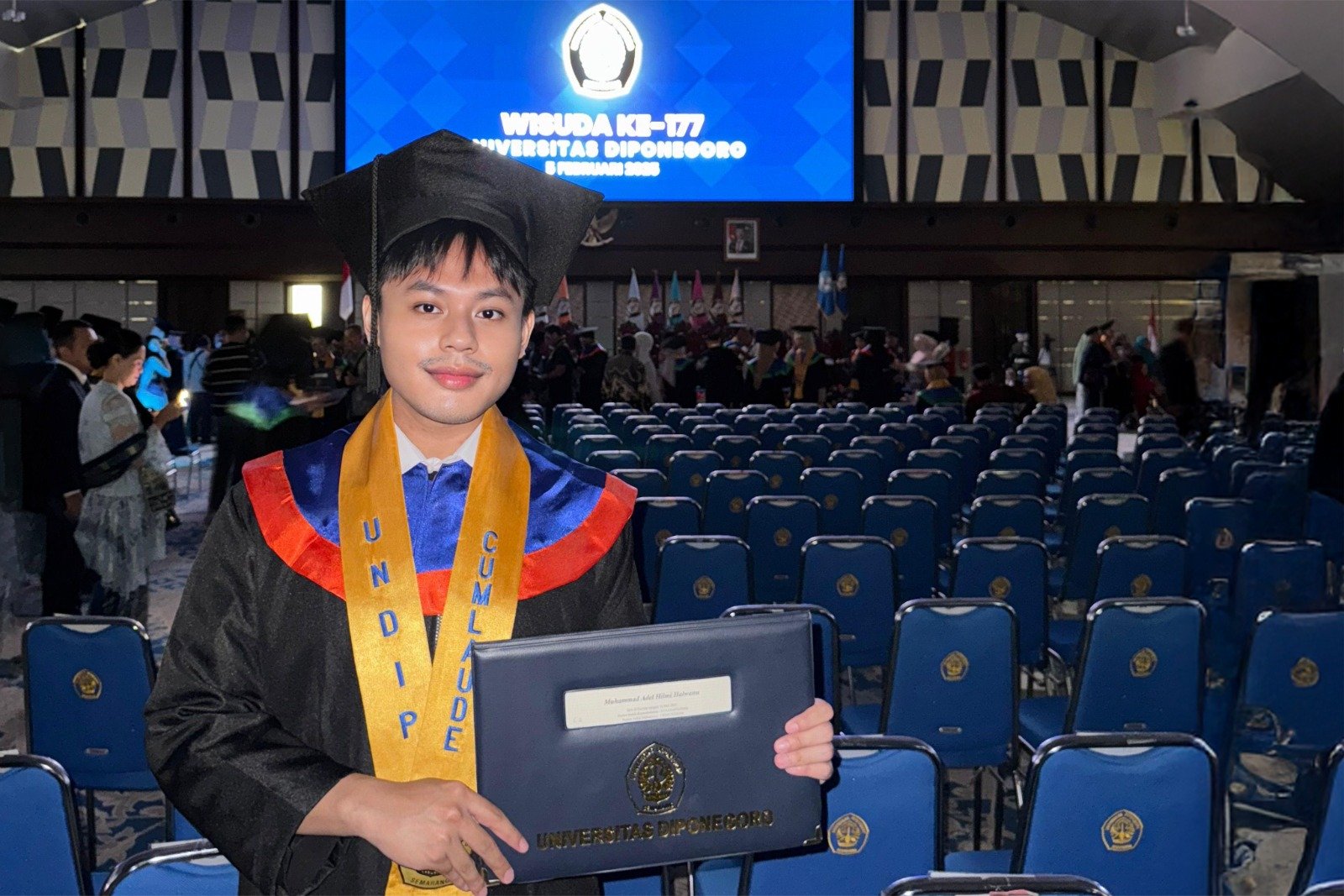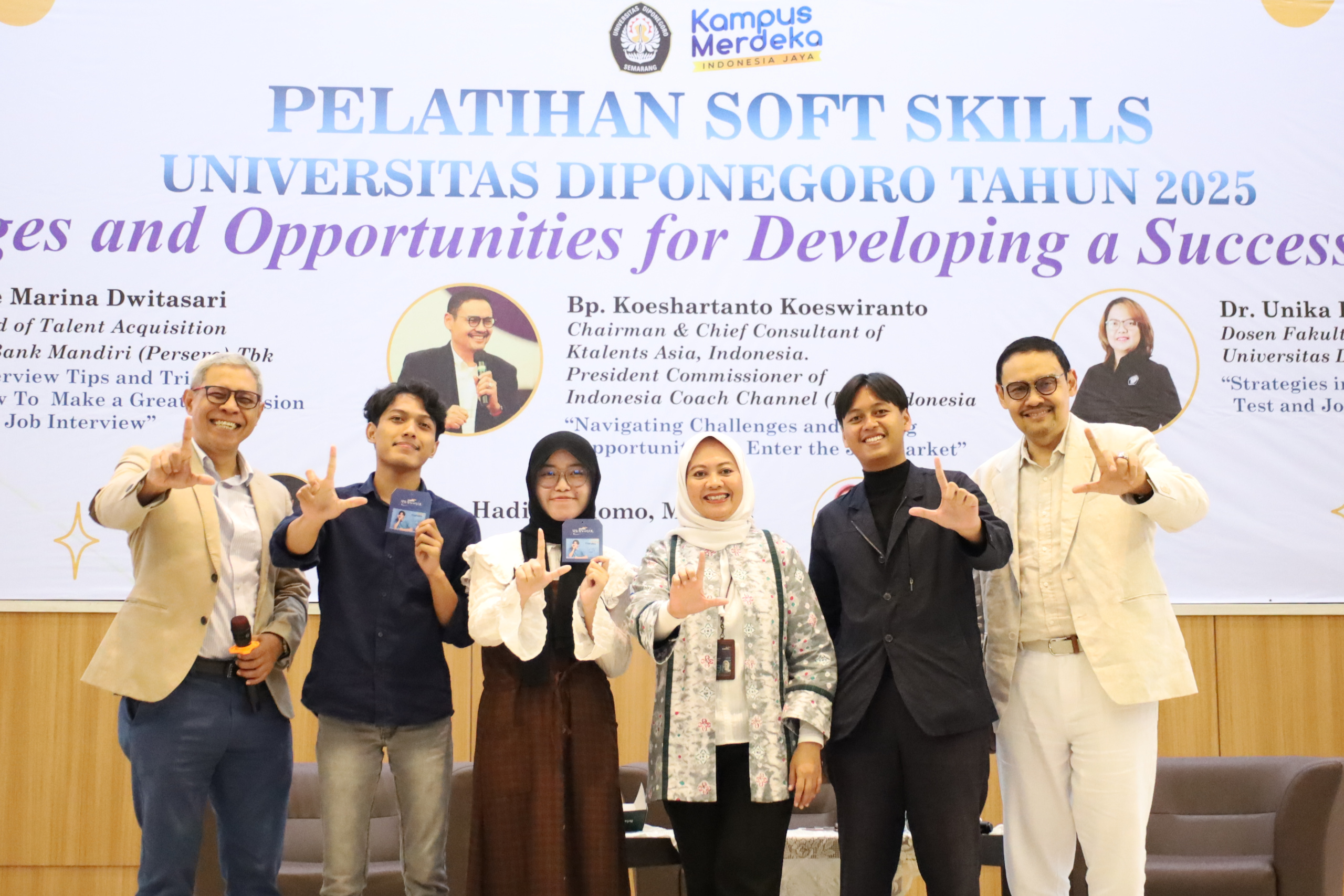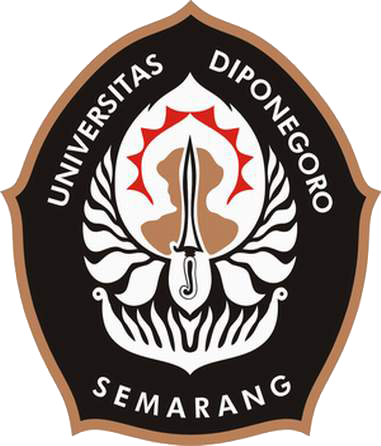UNDIP, Semarang (February 21) – Universitas Diponegoro (UNDIP) has once again affirmed its position as a leading research university with the inauguration of five new professors during the Open Session of the Academic Senate. This inauguration is part of a series of ceremonies held throughout January–February 2025, taking place at the Prof. Sudarto, S.H. Building, UNDIP Tembalang Campus, on Thursday, February 20, 2025.
The five newly inaugurated professors come from the Faculty of Animal and Agricultural Sciences and the Faculty of Engineering, namely: Prof. Sutaryo, S.Pt., MP., Ph.D.; Prof. Dr. Yoyok Budi Pramono, S.Pt., M.P.; Prof. Dr. Ing. Novie Susanto, S.T., M.Eng.; Prof. Dr. Ir. Ratna Purwaningsih, S.T., M.T., IPU., ASEAN Eng.; and Prof. Dr. Parlindungan Manik, S.T., M.T.
In his remarks, UNDIP Rector, Prof. Dr. Suharnomo, S.E., M.Si., expressed appreciation for the dedication of the professors in academics and research. “On behalf of Universitas Diponegoro, we are very proud of this achievement. May the professors inaugurated today continue to contribute to making UNDIP a globally reputable, impactful, and dignified university,” he said.
Prof. Suharnomo further emphasized the importance of innovation and the application of scientific knowledge in society. “The scientific papers we produce are not merely prototypes in laboratories but must provide real benefits to the community. UNDIP is also committed to continuously enhancing the academic atmosphere and improving basic facilities to support the development of quality research and education,” the Rector added.
During the inauguration speeches, each professor presented their research findings and academic contributions in their respective fields. The series began with Prof. Sutaryo, an expert in Livestock Waste Management Science. In his oration titled ‘Optimizing Biogas Production from Cattle Waste through Co-Digestion with Tropical Agricultural Waste: A Step Toward Sustainable Livestock Industry,’ Prof. Sutaryo highlighted the livestock sector as one of the most significant contributors to greenhouse gas (GHG) emissions.
One of the proposed solutions is livestock waste processing using the co-digestion method—mixing cattle manure with other biomass to boost biogas production. Prof. Sutaryo’s research showed that co-digestion with certain organic materials, such as papaya seeds and pineapple crowns, can increase methane production by up to 221%.
Next, Prof. Yoyok delivered his oration titled ‘Integration of Fermentation Systems and Food Safety for Quality Products.’ As an expert in Food Microbiology (Fermentation Technology), he stressed the importance of synergy between fermentation processes and food safety systems to produce higher-quality, safer products.
Prof. Yoyok highlighted the need for stricter regulations on traditional fermented products and the challenges of maintaining food safety amidst climate change and rising chemical contamination. Solutions such as implementing SQC (Statistical Quality Control) and e-GMP (electronic Good Manufacturing Practices) were proposed to ensure better quality standards.
Prof. Novie Susanto, an expert in Work Design & Measurement, followed with her oration titled ‘Designing Testing Systems for the Development of Medical Device Products Using Ergonomics Reverse Engineering Adaptation.’ She introduced the concept of Ergonomics Reverse Engineering—an adaptive approach derived from reverse engineering to accelerate testing and development of medical devices. This concept enables faster, more agile, and industry-relevant product design.
In her inauguration speech titled “Eco-Friendly Product Design Inspired by Nature’s Solutions through Biomimicry,” Prof. Ratna Purwaningsih emphasized the urgency of sustainable product design by drawing inspiration from nature. Biomimicry, as an innovative approach, has led to various eco-friendly products, including spiral-shaped swim gloves that improve propulsion efficiency. This research opens excellent opportunities for industries to develop innovative products that are not only functional but also contribute to environmental sustainability.
Prof. Ratna also highlighted the importance of design approaches that consider not only technical aspects but also user behavior and social impact. With the continuous growth of industries, biomimicry-based design is expected to be a solution to creating more efficient and environmentally friendly products. Her research findings have been patented and presented in various national and international forums.
In the final session, Prof. Parlindungan, an expert in Material for Small Craft, delivered his oration titled ‘Utilization of Bamboo Fibers as Composite Materials for Boat Construction.’ He studied laminated bamboo composites as an alternative to wood in boatbuilding. His research showed that laminated bamboo, when compacted at optimal pressure, can enhance tensile, bending, and impact strength. Further studies also revealed that using insulating materials like polyurethane foam can improve the boat’s ability to preserve fish storage.
With the addition of new professors, UNDIP continues to strengthen its academic contributions and scientific innovation. The university’s commitment to supporting applied research is expected to have a tangible impact on society and sustainable development in Indonesia. (DHW)
